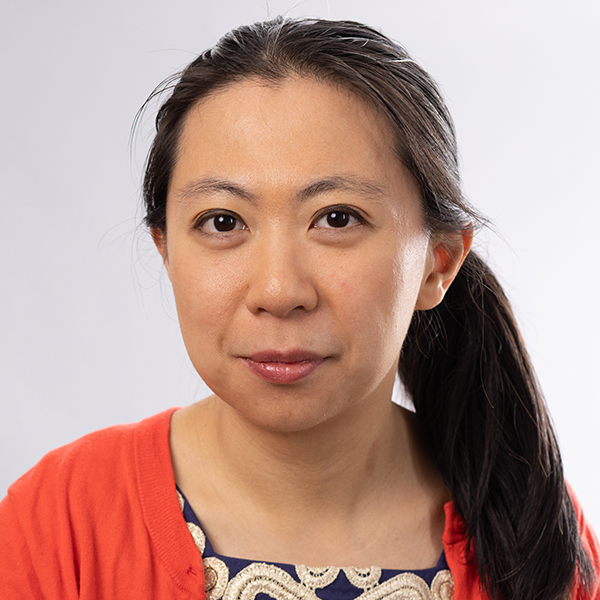full-time faculty teaching and conducting research in political science
of Maxwell faculty conduct research focused outside of the U.S.
graduate students in residence; fewer than 12 admitted each year
Undergraduate Studies
Graduate Studies

I am Maxwell.
Civic engagement is a core value for me. I have always aspired to help the communities I’m from.” Mazaher Kaila, a Maxwell alumna and third-year student at Syracuse University's College of Law, moved with her family from Sudan to Central New York when she was four years old. “I realized that to make meaningful change in society, I needed to understand the systems that power it—government and politics—and that’s insight I would gain by studying political science.”
Mazaher Kaila ’19, L’22
political science, law
Johanna Dunaway Selected for Prestigious Carnegie Fellowship
May 7, 2024
The professor and research director for the Institute for Democracy, Journalism and Citizenship will receive funding to advance her research into the causes of political polarization.
Johanna Dunaway, professor of political science and research director of the Syracuse University Institute for Democracy, Journalism and Citizenship (IDJC), has been named a 2024 Carnegie Fellow. She is one of 28 distinguished scholars and writers selected as a Carnegie Fellow to study political polarization.
“We are incredibly proud of Professor Dunaway and her work,” says David M. Van Slyke, dean of the Maxwell School. “Her research, teaching and scholarly leadership on this issue have already brought great benefit to our understanding of the impact of changing news coverage and consumption on our democracy. This fellowship will expand that already important work and benefit our society at large.”
As recipients of the so-called “brainy award,” Carnegie Fellows will receive a grant of up to $200,000 for research seeking to understand the causes of polarization in our society and what can be done to address this challenge. The award is for up to two years, with fellows typically working on a book or major study.
Dunaway will use her award to further her research on the relationship between changing news focus and political polarization. The project will specifically examine the roots and consequences of affective polarization, with a focus on the role of changing media environments, and how both are tied to anti-democratic behaviors.
“I am honored to receive this fellowship and look forward to conducting the research,” says Dunaway. “By helping us better understand the conditions under which the news environment fuels the influence of affective polarization on political reasoning and behavior, I am hopeful this project will address a critical gap in our ability to understand it as a threat to democracy.”
Dunaway’s Carnegie project builds on earlier polarization and media examinations. In 2018 she and two other scholars, including Associate Professor of Communications Josh P. Darr, studied voting patterns in communities with shuttered newspapers. Their work was published in the Journal of Communication and was followed by a book co-authored with Darr based on new research related to the impact of the original findings, “Home Style Opinion: How Local Newspapers Can Slow Polarization” (Cambridge University Press, 2021).
The Carnegie Corporation of New York selected this year’s fellows from over 360 applicants—a record number for the program. Founded in 2015, the Andrew Carnegie Fellows Program provides the most generous stipend of its kind for research in the humanities and social sciences.
Dunaway assumed her role at the IDJC in the fall of 2023. She also serves as a professor of political science, teaching courses in American politics, political communication, public opinion and mass media for the Maxwell School.
She joins a growing list of Maxwell faculty who have earned this prestigious award, including Shana Gadarian, professor of political science and associate dean for research, in 2021; Thomas Keck, professor of political science and the Michael O. Sawyer Chair of Constitutional Law and Politics, in 2019; and Jennifer Karas Montez, University Professor, professor of sociology and the Gerald B. Cramer Faculty Scholar in Aging Studies, in 2018.
Related News
Commentary

Aug 1, 2024
Commentary

Jul 31, 2024
Commentary

Jul 30, 2024
School News

Jul 30, 2024
BaoBao Zhang Joins First Cohort of AI2050 Early Career Fellows
One of only 15 scholars chosen from across the U.S., Zhang will receive up to $200,000 in research funding over the next two years. Zhang will use the funding to partner with the nonprofit, non-partisan Center for New Democratic Processes to test whether public participation in AI governance is increased through the creation of public assemblies, known as “deliberative democracy workshops.”
Baobao Zhang
Assistant Professor, Political Science Department

Johanna Dunaway Selected for Prestigious Carnegie Fellowship
May 7, 2024
The professor and research director for the Institute for Democracy, Journalism and Citizenship will receive funding to advance her research into the causes of political polarization.
Johanna Dunaway, professor of political science and research director of the Syracuse University Institute for Democracy, Journalism and Citizenship (IDJC), has been named a 2024 Carnegie Fellow. She is one of 28 distinguished scholars and writers selected as a Carnegie Fellow to study political polarization.
“We are incredibly proud of Professor Dunaway and her work,” says David M. Van Slyke, dean of the Maxwell School. “Her research, teaching and scholarly leadership on this issue have already brought great benefit to our understanding of the impact of changing news coverage and consumption on our democracy. This fellowship will expand that already important work and benefit our society at large.”
As recipients of the so-called “brainy award,” Carnegie Fellows will receive a grant of up to $200,000 for research seeking to understand the causes of polarization in our society and what can be done to address this challenge. The award is for up to two years, with fellows typically working on a book or major study.
Dunaway will use her award to further her research on the relationship between changing news focus and political polarization. The project will specifically examine the roots and consequences of affective polarization, with a focus on the role of changing media environments, and how both are tied to anti-democratic behaviors.
“I am honored to receive this fellowship and look forward to conducting the research,” says Dunaway. “By helping us better understand the conditions under which the news environment fuels the influence of affective polarization on political reasoning and behavior, I am hopeful this project will address a critical gap in our ability to understand it as a threat to democracy.”
Dunaway’s Carnegie project builds on earlier polarization and media examinations. In 2018 she and two other scholars, including Associate Professor of Communications Josh P. Darr, studied voting patterns in communities with shuttered newspapers. Their work was published in the Journal of Communication and was followed by a book co-authored with Darr based on new research related to the impact of the original findings, “Home Style Opinion: How Local Newspapers Can Slow Polarization” (Cambridge University Press, 2021).
The Carnegie Corporation of New York selected this year’s fellows from over 360 applicants—a record number for the program. Founded in 2015, the Andrew Carnegie Fellows Program provides the most generous stipend of its kind for research in the humanities and social sciences.
Dunaway assumed her role at the IDJC in the fall of 2023. She also serves as a professor of political science, teaching courses in American politics, political communication, public opinion and mass media for the Maxwell School.
She joins a growing list of Maxwell faculty who have earned this prestigious award, including Shana Gadarian, professor of political science and associate dean for research, in 2021; Thomas Keck, professor of political science and the Michael O. Sawyer Chair of Constitutional Law and Politics, in 2019; and Jennifer Karas Montez, University Professor, professor of sociology and the Gerald B. Cramer Faculty Scholar in Aging Studies, in 2018.
Related News
Commentary

Aug 1, 2024
Commentary

Jul 31, 2024
Commentary

Jul 30, 2024
School News

Jul 30, 2024
